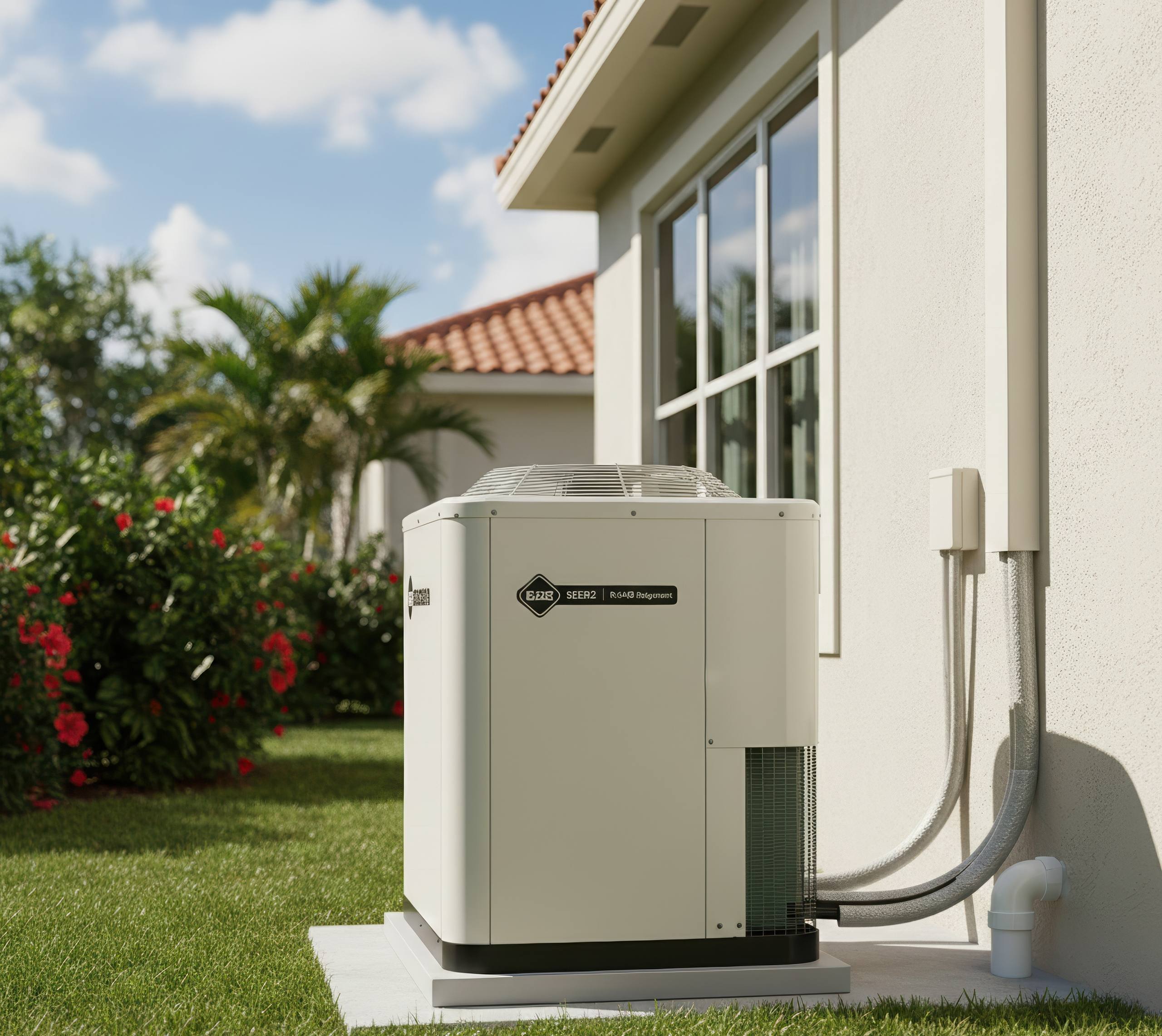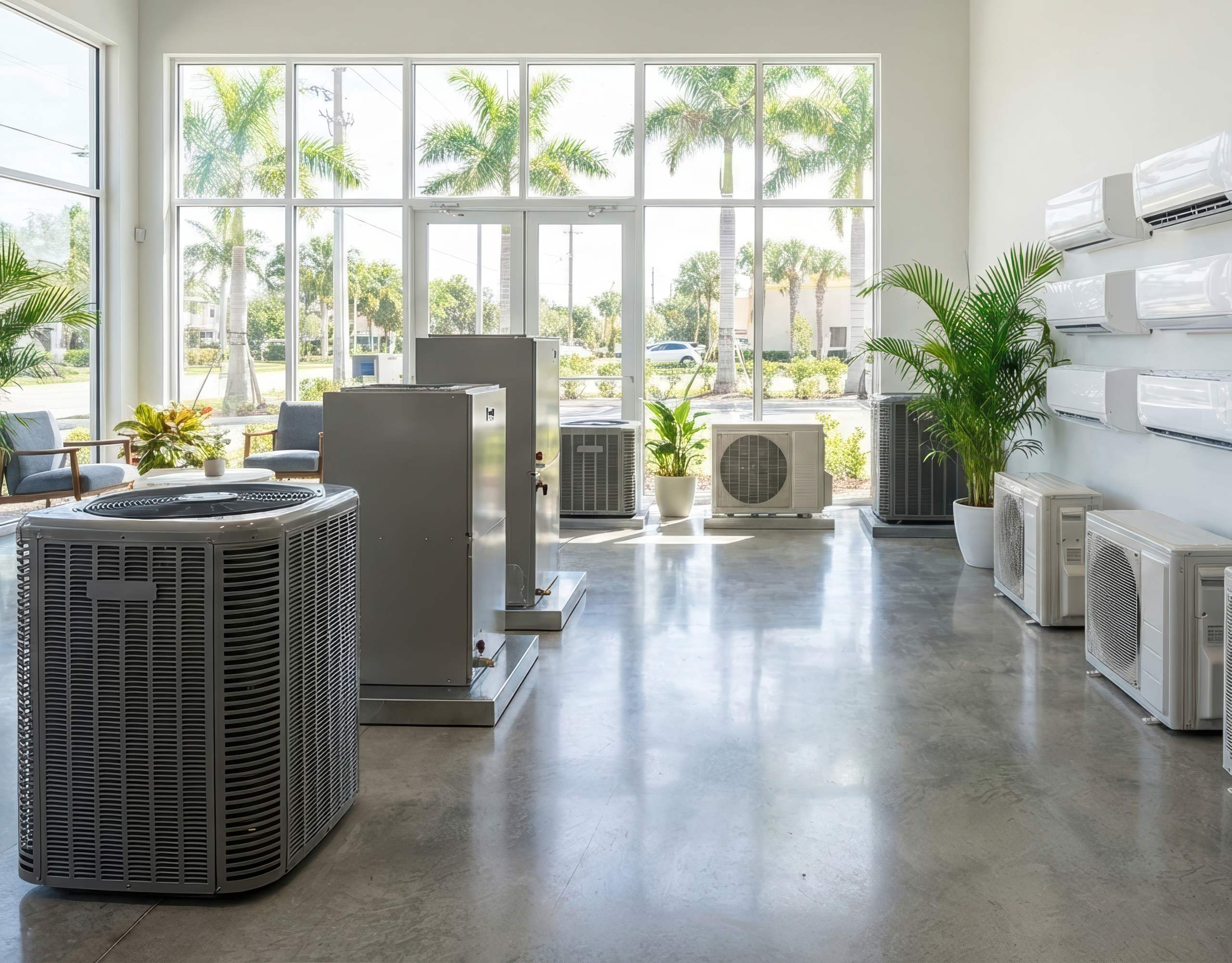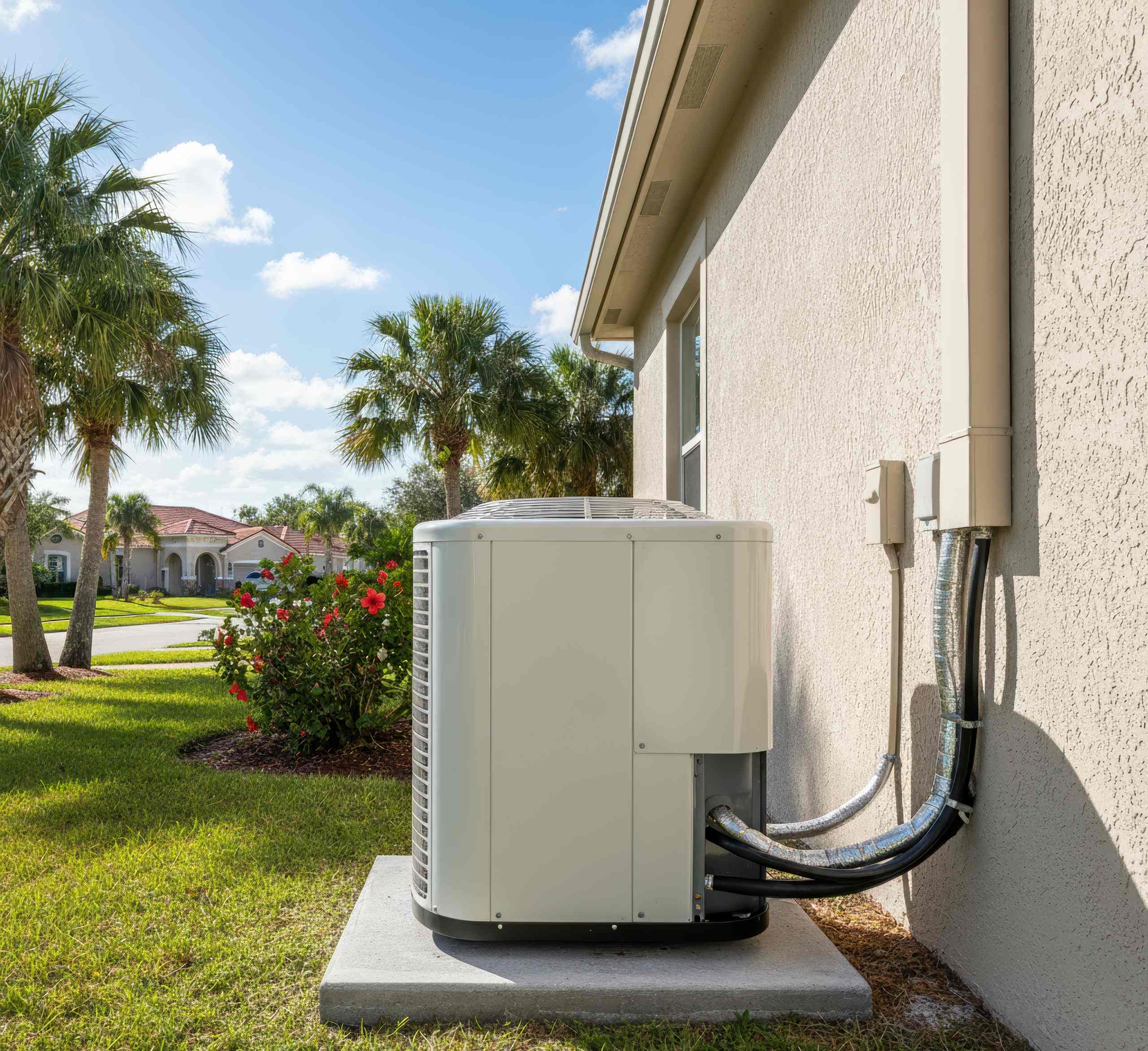With another blistering Orlando summer almost behind us but no let-up in the heat, residents may be considering an upgrade to their home’s cooling equipment.
Now may be a good time to shop for promotions and bargains on air conditioning services—especially if you have an aging system that has suffered problems dealing with the recent heat. Delaying it only increases the risk of AC failure when you need cooling most in the home.
AC replacement costs in Orlando vary according to the home’s cooling needs, type of unit, SEER or SEER2 rating (efficiency), installation complexity, HVAC company, and other factors.
Let’s break down the costs of different AC types and cover each factor impacting cost, so that you know what to expect for your home’s AC replacement…
AC REPLACEMENT COST IN ORLANDO
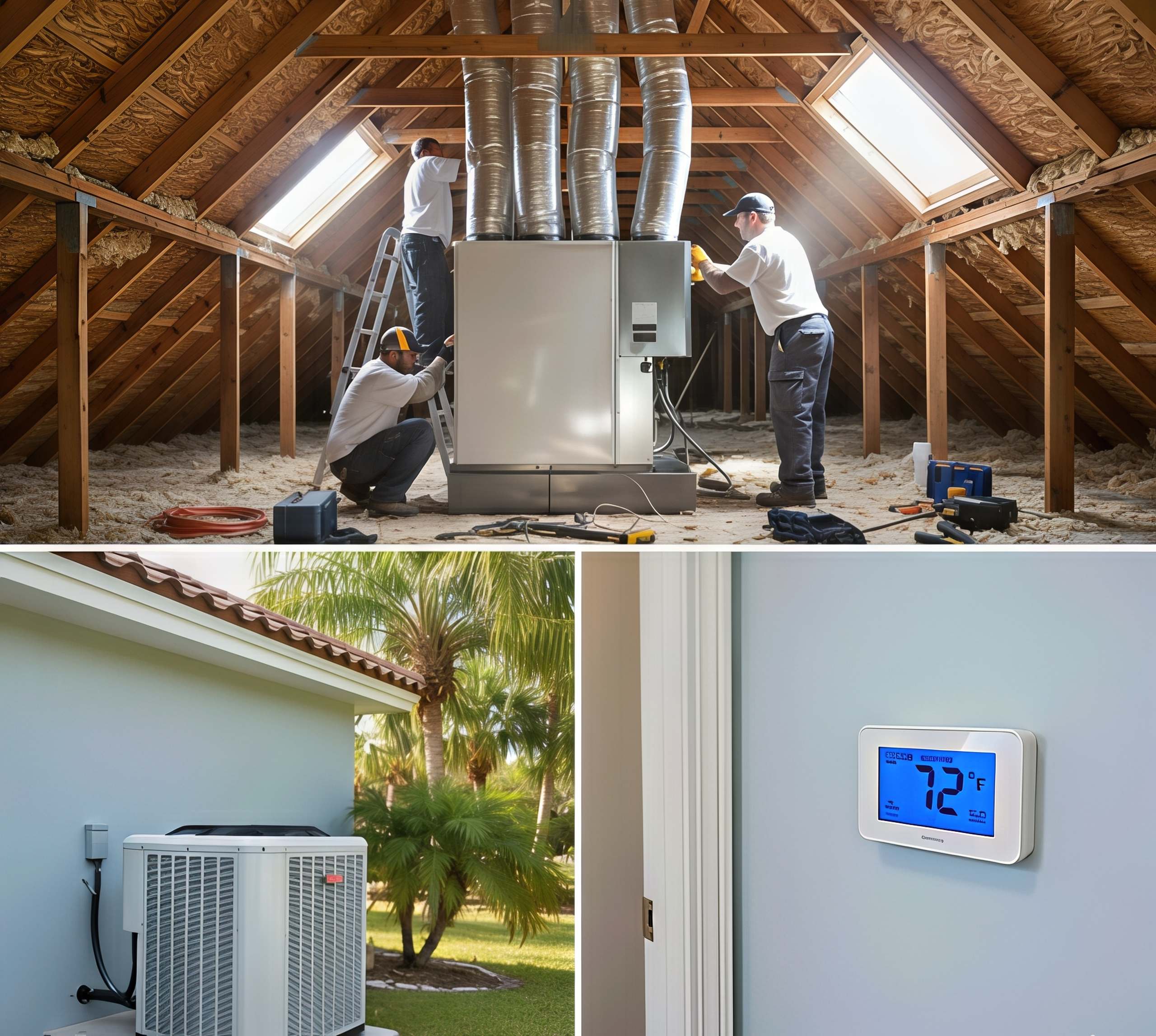
A central AC replacement unit of moderate efficiency for an average-sized home in Orlando usually costs between $4,000 and $7,000 fully installed. A high-efficiency unit or new ductwork can push the costs well beyond this. Ductless mini-split AC replacements usually cost around $2,000 to $5,000, depending on room size and zoning requirements…
Let’s break down the typical AC replacement costs in more detail and look at all the factors that influence how much it costs to replace AC in Orlando…
STAY COOL ALL YEAR ROUND WITH ONE WAY AIR…
The team at One Way Air installs, services, and repairs all types of air conditioning systems in Southwest Florida. Get in touch with us here for a quote or call 239-233-4356 in emergencies.
AVERAGE AC REPLACEMENT COSTS IN ORLANDO: FULL BREAKDOWN
The average-sized home in Orlando is 1,950 square feet. That’s the indoor, climate-controlled floor area of the house, excluding the yard. Almost 90 percent of homes in Florida have central air conditioning.
The following is a simplified table that should give you an idea of the replacement costs for central air conditioning units for various sizes of homes. Prices quoted are for full installation (equipment, labor, and standard installation), including sales tax but excluding major ductwork replacement, electrical panel upgrades, structural work or unusual site access problems.
|
AC Size/Type/Efficiency |
Large Home (3000 sq. ft.) |
Midsize Home (2000 sq. ft.) |
Small Home (1,000 sq. ft.) |
|
AC size |
4.5 to 5 tons |
3 to 4 tons |
1.5 to 2 tons |
|
Cost of Central AC unit (Moderate Efficiency SEER 13–15) |
$9,000 to $14,000 |
$6,000 to $9,500 |
$3,500 to $6,000 |
|
Cost of Central AC unit (High Efficiency SEER 16-18) |
$12,000 to $18,500 |
$8,000 to $12,000 |
$4,500 to $7,000 |
|
Cost of Central AC unit (Highest Efficiency SEER 19-22+) |
$15,000 to $24,000 |
$10,000 to $16,000 |
$6,000 to $10,000 |
|
Ductless mini-split (cost per room for a single zone head) |
$1,400 to $6,000 (high-efficiency models) |
$1,400 to $5,000+ (high-efficiency models) |
$1,400 to $4,000+ (high-efficiency models) |
KEY FACTORS THAT IMPACT AC REPLACEMENT COST
Home size, unit type/size, and efficiency all impact the replacement costs of AC. Local Orlando quotes may vary by 15–30 percent depending on other factors, too, such as the AC brand, warranty, permits, and site complexity.
Let’s look at each of these important factors in more detail so that you can assess their impact on your home’s cooling requirements.

HOME SIZE AND COOLING NEEDS
Although we’ve taken the average size of an Orlando home to be 1,950 to 2,000 square feet, your home may not be that size. Almost every home in Orlando requires significant cooling capacity but a 3,000-square-foot home needs a more powerful system than a 1,000-square-foot home.
To accurately assess the cooling needs of the home, you’ll also need to factor in:
- Home insulation quality
- The number of occupants in the home
- Home construction type
- The integrity of the existing ducting system
- Home ventilation systems
- Electrical appliances used
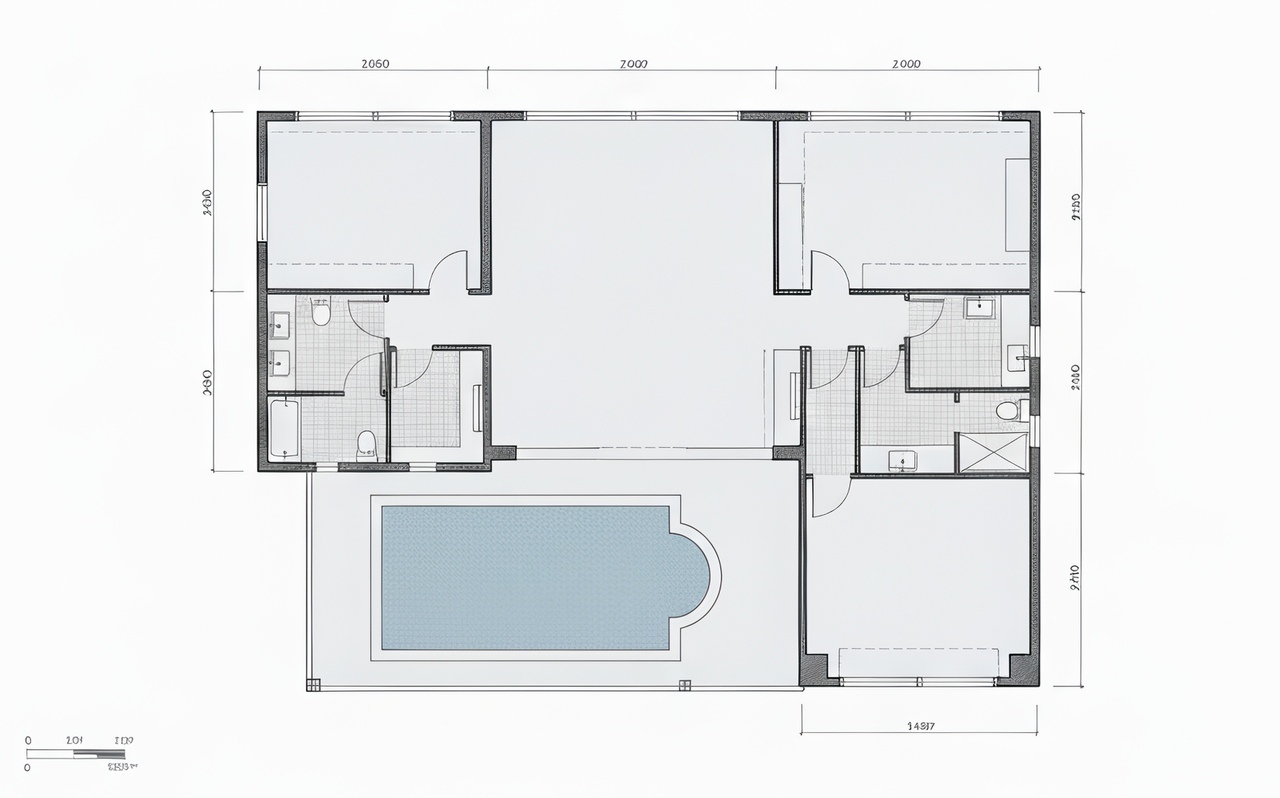
One of our Orlando AC professionals can perform a load capacity assessment for your home’s cooling needs before recommending the best AC replacement solution.
AC UNIT TYPE/EFFICIENCY
Most likely, you’ll already have ducted central air conditioning in your home. You’ll simply need to replace the unit if you’ve had it for 12-15 years or more.
However, central AC units come in many types, from traditional single-speed models to higher-efficiency two-stage air conditioners (SEER 16-18) and the highest-efficiency variable speed models (SEER 19-22+).
The cost of an AC replacement in Orlando varies greatly with unit type and efficiency, with the latest models costing more to purchase and install—but also saving money on electricity bills every month.
Homes without existing ducting may choose a ductless mini-split air conditioner to cool a particular room or several rooms. These units have an indoor unit (“air handler”) and an outdoor unit (“condenser”), which helps to remove moisture from the air and lowers the air temperature.
Heat pumps are another option for Orlando homeowners. These HVAC units provide both heating and cooling and, with more complex installation processes, may cost more than AC units to install.
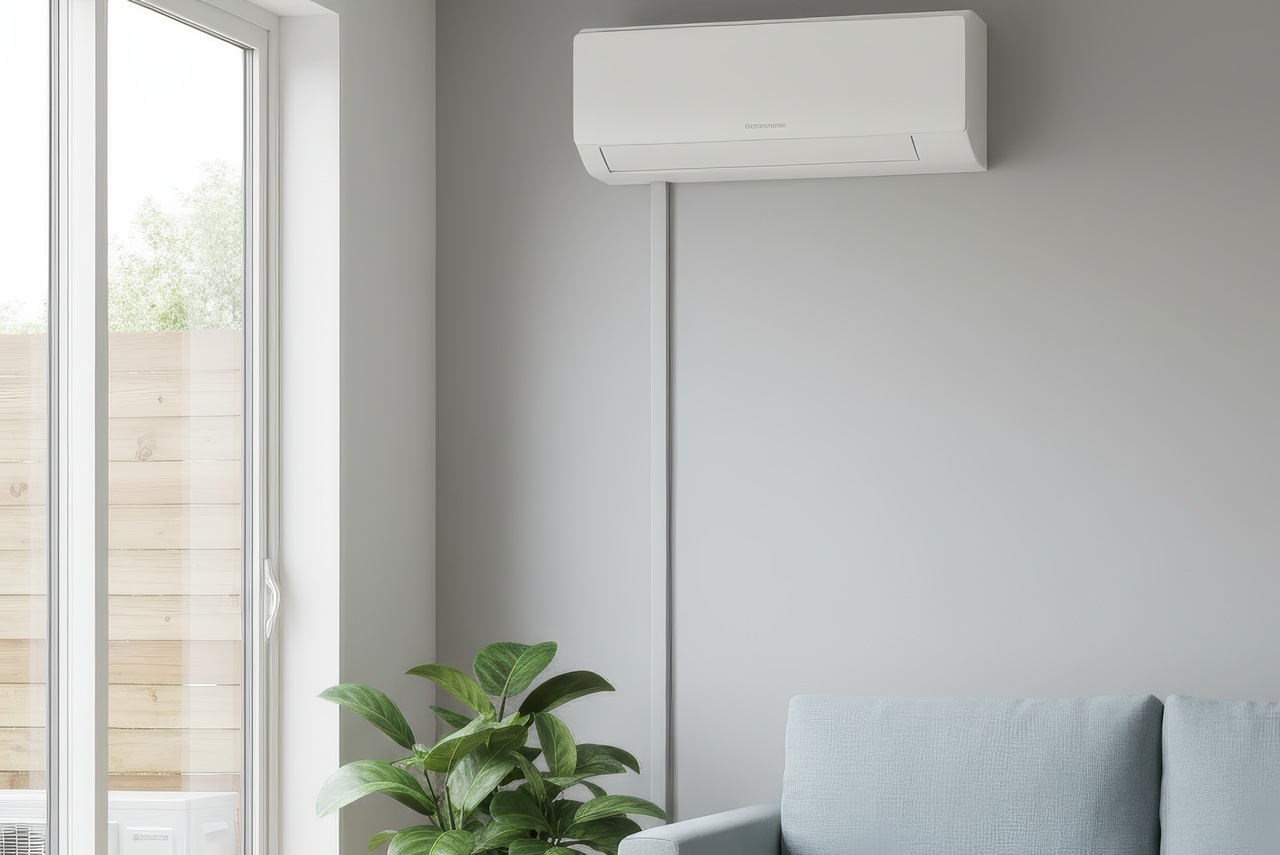
NOTE
SEER stands for Seasonal Energy Efficiency Ratio. Federal law requires a minimum SEER2 rating of 14.3 (about 15 SEER) for split-system air conditioners and heat pumps below 45,000 Btu/h in the entire Southeast region of the country. For split systems at or above 45,000 Btu/h, the minimum SEER2 is 13.8 (approximately 14.5 SEER).
AIR CONDITIONER SIZE/BTU RATING
When researching new air conditioning units, you’ll see both tonnage and BTU ratings referred to for AC size.
Tonnage measures how much heat the system can remove from your home in one hour. The larger the tonnage, the greater the cooling power and the higher the cost, generally speaking. Most average-sized homes in Orlando will need an AC unit of 3 to 4 tons to cool the entire home.
BTU (British Thermal Units) measures how much heat an AC system can remove from a home in one hour. Most residential units fall between 12,000-60,000 BTUs, with central AC units for larger homes towards the top of that range.
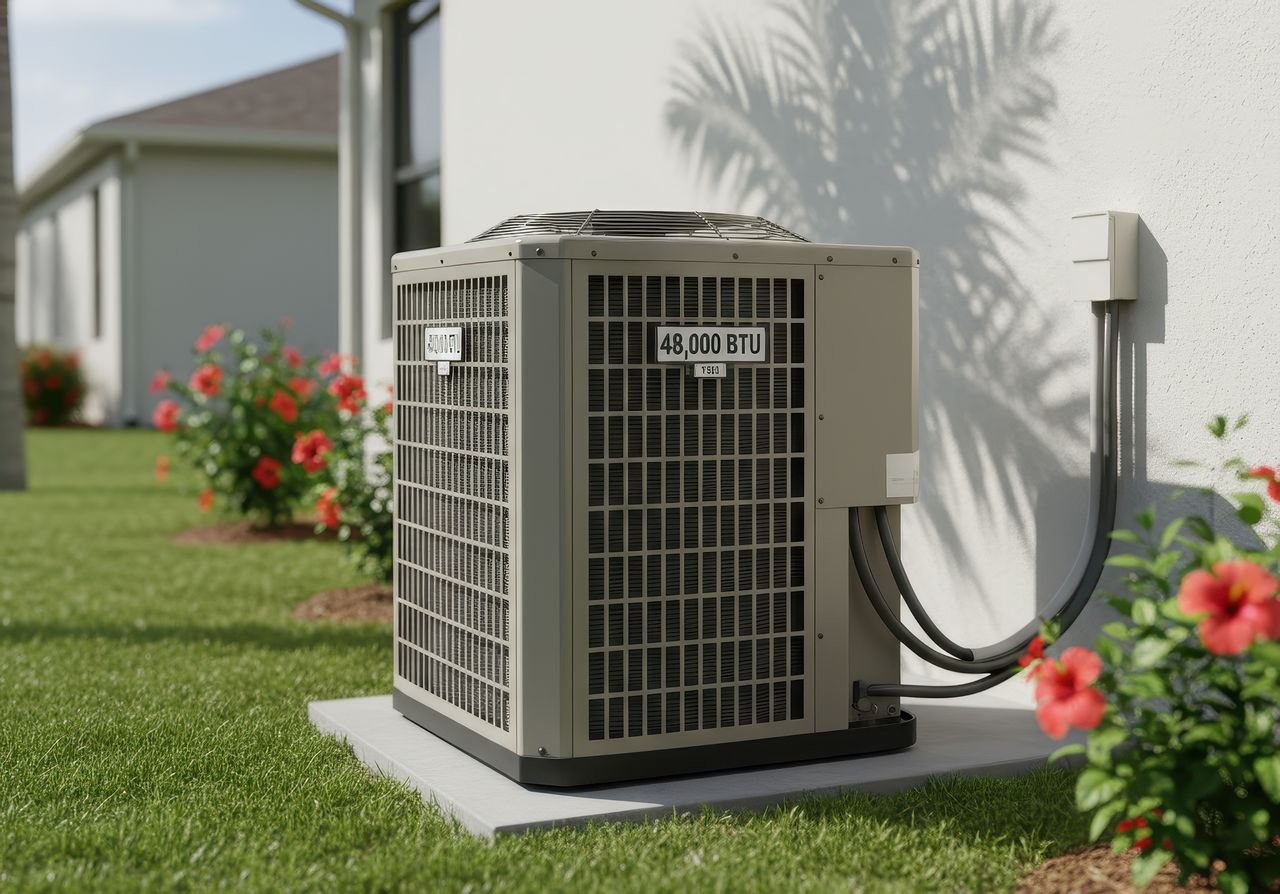
This table compares BTU with tonnage for a basic reference:
|
AC Tonnage |
BTU output of AC |
|
1 ton |
12,000 BTU |
|
2 tons |
24,000 BTU |
|
3 tons |
36,000 BTU |
|
4 tons |
48,000 BTU |
|
5 tons |
60,000 BTU |
TIP
To roughly calculate the size of AC you need, allow 20-60 BTUs per square foot (average 40 BTUs per square foot) to cool your home. However, an HVAC professional should perform a proper Manual J load calculation to factor in all major considerations before investing in a new cooling system.
AC UNIT BRAND
The leading AC brands with the most established and familiar names are usually priced similarly. With well-trusted cooling performance, you may want to pay a little more for decades of manufacturing know-how and a reputable brand name.
Your AC is a major investment that should last for the next 10-15 years or more if you buy well and look after it. A few of the leading brands in Orlando are:
- Lennox
- Goodman
- Carrier
- American Standard
- Trane
- Rheem/Ruud
- Daikin
- Mitsubishi Electric
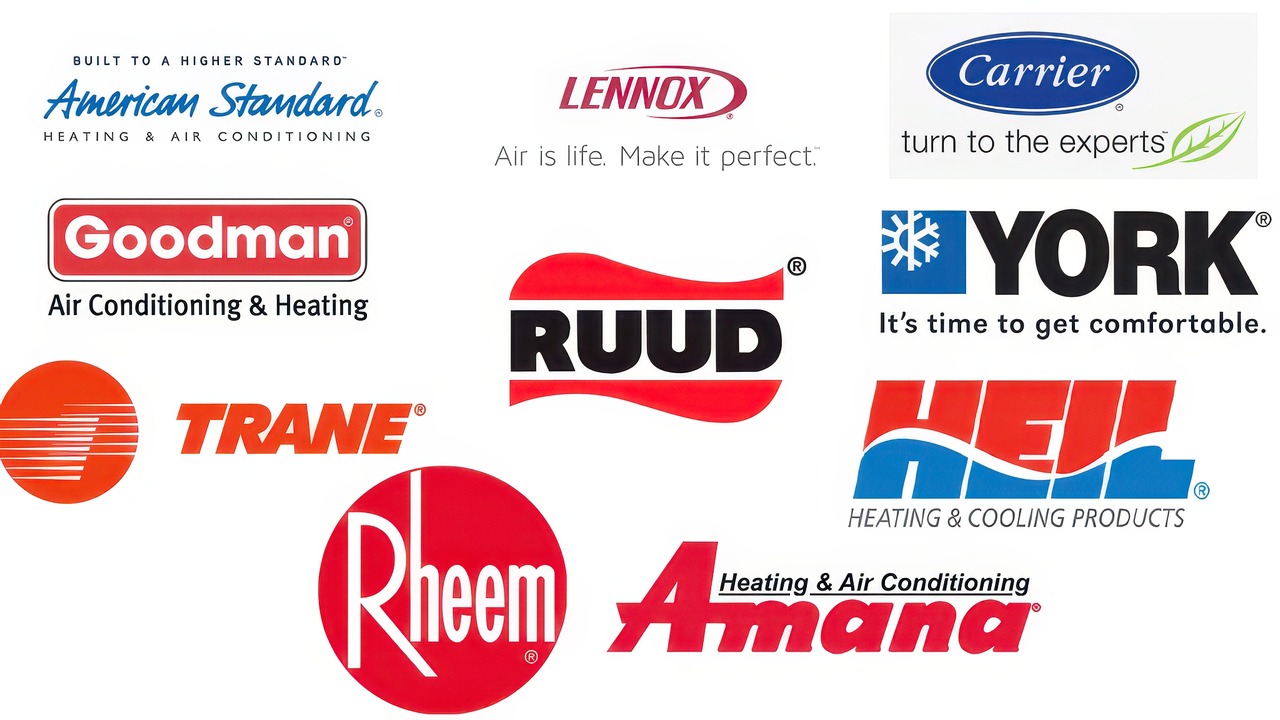
At One Way Air, our professionals install, maintain, and repair all leading brands of air conditioners.
AC WARRANTY
Some AC manufacturers and contractors offer extended warranties for parts or service/labor that can raise the cost of an AC replacement in Orlando.
Standardly, the leading brands provide a minimum of a five-year warranty for parts, often 10 years. An extended warranty may cover a longer period and labor costs for AC repairs, too. Extended warranties from AC contractors, dealers or suppliers may cover labor, service, refrigerant, etc.
Homeowners should carefully check warranties before purchasing a new AC unit and hiring an HVAC contractor in Florida. If the upfront costs are higher than expected but include a longer warranty, repair and maintenance costs can be saved over the coming years.

All AC systems sold and installed by One Way Air include generous manufacturer warranties for extra peace of mind.
DUCTWORK CONDITION
The condition of your home’s ductwork also affects central AC replacement costs in Orlando.
Ductwork that is clean, undamaged, and complete may need no extra attention during the AC installation process. However, if sealing, repairs, redesign or extensions to the ductwork are required, installation costs can rise significantly—a complete redesign can cost upwards of $10,000.
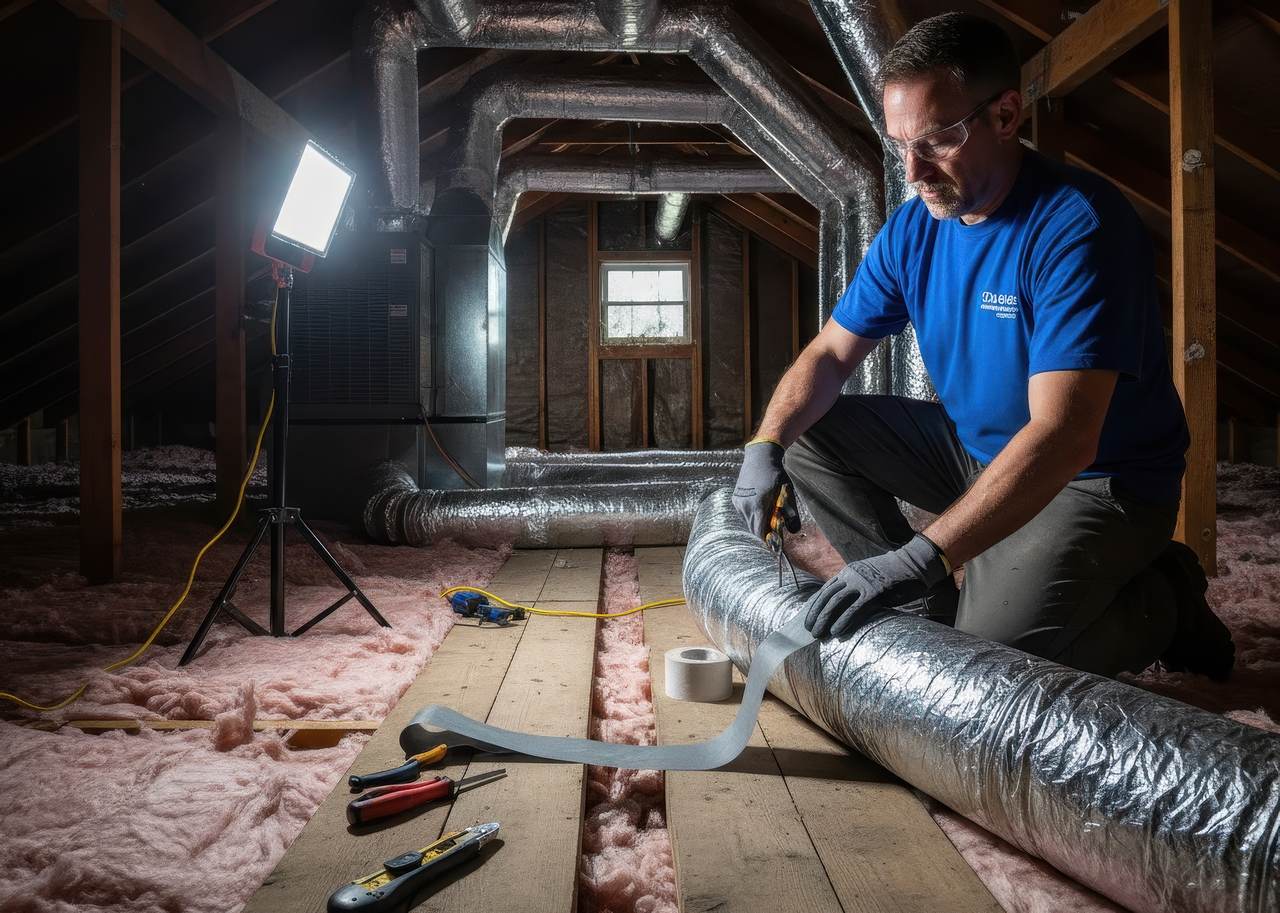
If ductwork repairs or maintenance are required during the installation process, the technicians at One Way Air will advise you during a home inspection and include it in the estimate.
INSTALLATION COMPLEXITY
The labor costs for AC installation in Orlando vary, depending on the installation complexity, as well as ductwork condition, brand, AC type, etc.
Air conditioning installation is not DIY work. It is highly specialized and technical, involving electrical work and handling AC refrigerant, which can be hazardous.
Most Orlando AC companies charge an hourly rate of $80-$150/hour (average). This can soon mount up for non-standard installations with extra complexity if working in tight attic spaces or on rooftops, performing electrical upgrades, organizing permits or fixing ductwork issues.
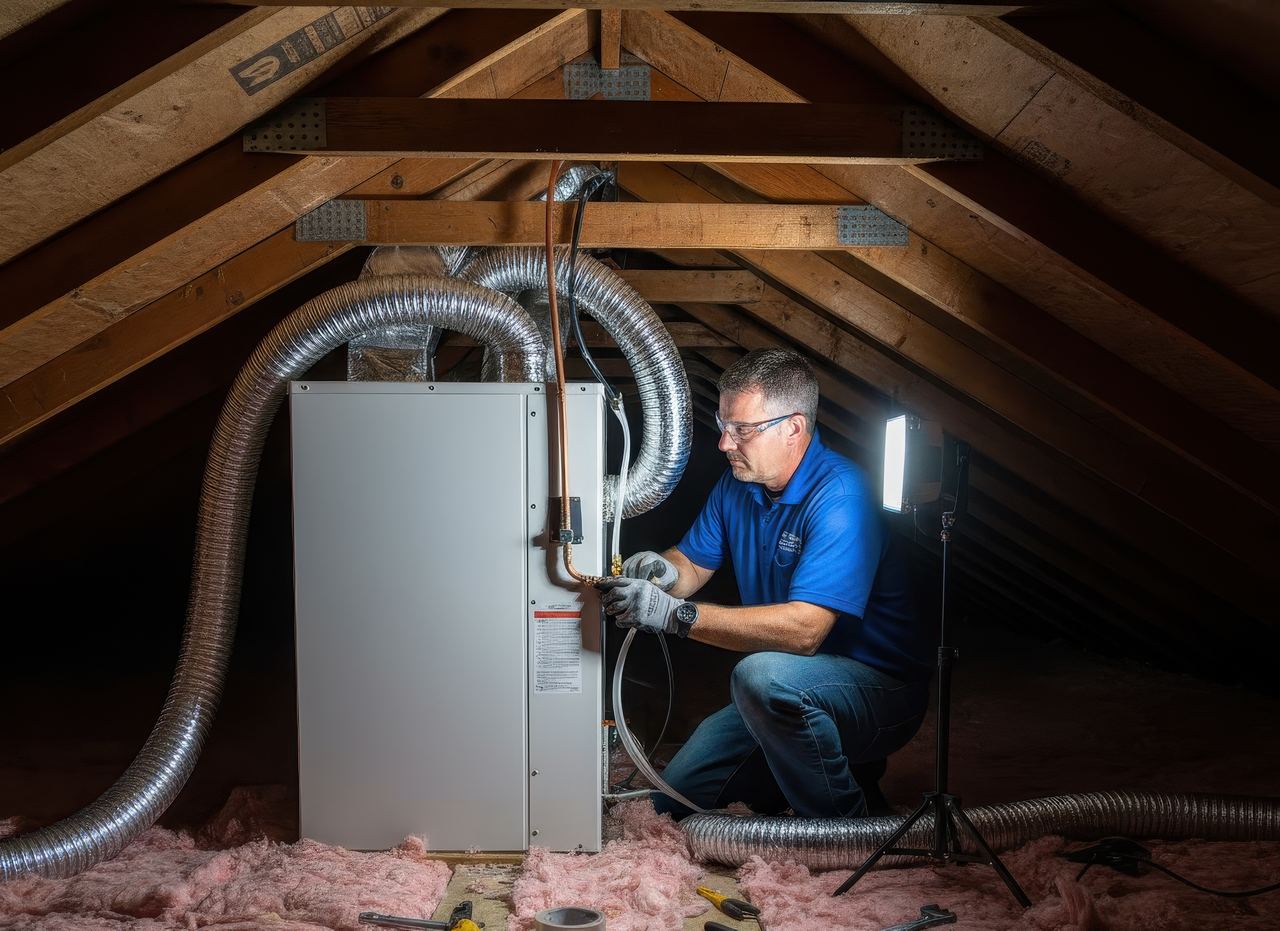
Before hiring an AC contractor, check HVAC licensing, business registration, and other credentials, besides the pricing for installations. The cheapest is not necessarily the best!
The professionals at One Way Air are fully licensed, insured, and experienced at AC installations—and will advise you of any potential complexities during a home inspection.
AC REPLACEMENT VS. REPAIR: SIGNS TO LOOK OUT FOR
How do you know if your AC unit needs replacing or repairing?
There’s no single answer to this but the benefits of replacing over repairing a unit increase if any of the following apply:
- Unit is aged 10-15 years or more.
- Frequent breakdowns with costly repairs.
- Unexplained rises in energy bills.
- Inconsistent cooling, humidity or indoor air quality problems.
- Outdated refrigerant (R-22) used.
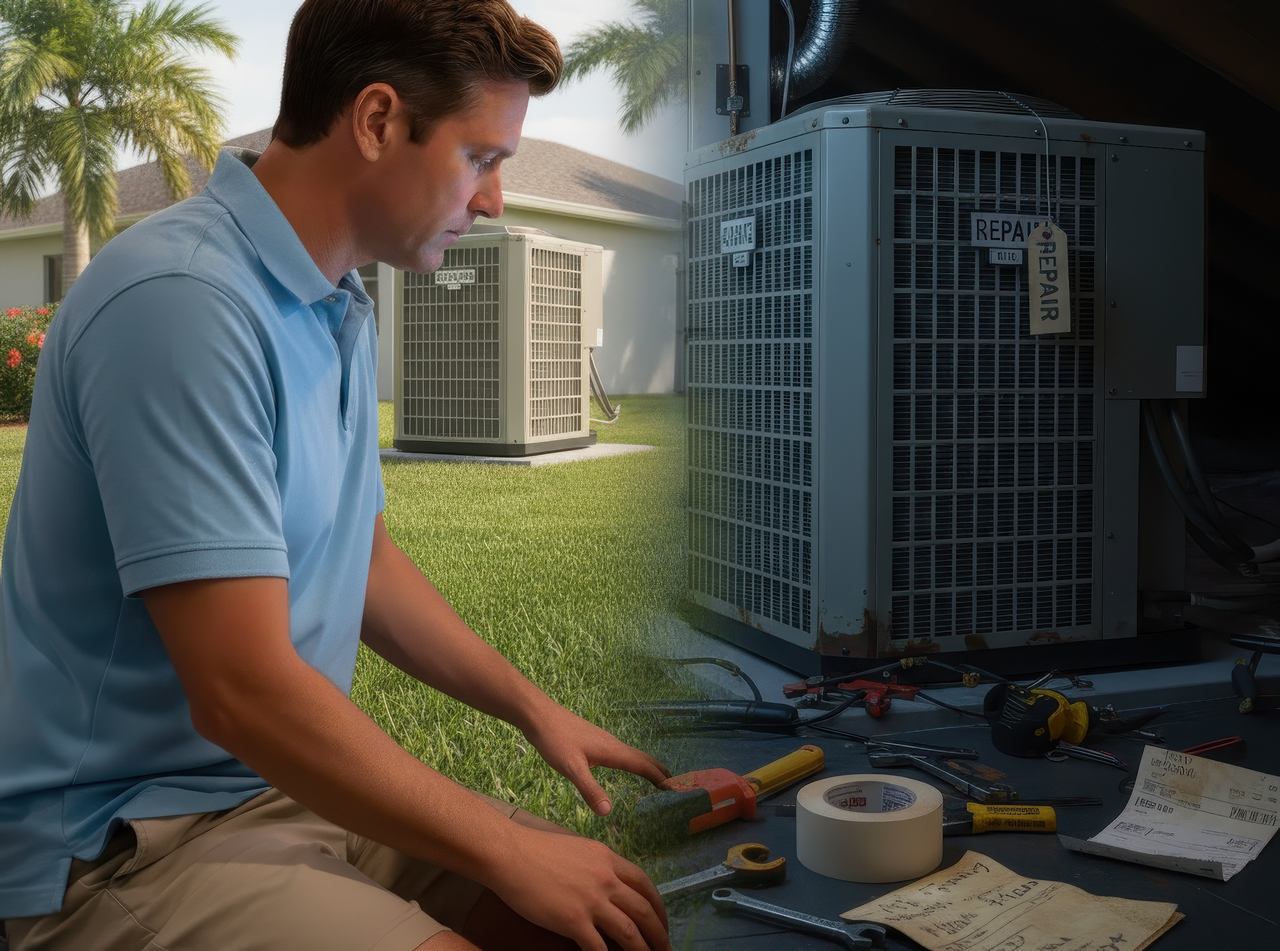
Some minor problems can be resolved with AC maintenance or basic repairs. However, if the repair bill would involve replacing a major part, such as a compressor or coil, or if more extensive repairs are required for an aging unit, upgrading to a high-efficiency furnace may make more sense.
If you’re unsure whether to repair or replace your air conditioning unit, our team provides honest assessments with reliable advice about your options.
HOW TO CHOOSE THE RIGHT AC SYSTEM FOR YOUR ORLANDO HOME
Homeowners should factor in the following if they decide that AC replacement is the best option:
- The home’s cooling requirements (usually determined by a professional audit/load calculation).
- The type of AC unit required (central AC, ductless mini-split(s), single-stage, two-stage or variable-speed).
- The size (BTU/tonnage) of the unit required to match home size.
- Efficiency expectations (SEER or SEER2 rating).
- Humidity control and the need for dehumidification in the home.
- Smart thermostat compatibility.
- Whether eco-friendly refrigerants are used.

COST-SAVING TIPS FOR AC REPLACEMENT
AC replacement costs in Orlando are significant, whichever way you cut it. However, there are several ways to ease the upfront financial “hit”.
FINANCING & PAYMENT OPTIONS
Most respectable HVAC companies offer low-interest financing and payment options to spread the purchase and installation costs over several months.
Replacing an AC unit usually involves upgrading to a higher efficiency model. This represents a sound investment in comfort and energy efficiency that is often paid back over the years ahead.

Another potential way to save is to schedule AC replacement during the “off-season”, in the early spring, late fall or winter, when AC companies are less busy and more open to “doing deals”.
Get quotes and compare costs from a short-list of licensed contractors—make sure that you compare like with like in terms of warranties, efficiency, models, service, etc.
REBATES & INCENTIVES
Federal and state rebates or incentives may be available when replacing an AC unit with a higher efficiency model. Program options change frequently, so it’s best to check with your HVAC contractor about the latest programs to reduce the upfront cost of an AC replacement in Orlando.
For instance, under the Inflation Reduction Act, federal tax credits may be available for investing in energy-efficient heat pumps and central air conditioners—though this is scheduled to end on December 31, 2025.
The Orlando Utility Commission rebate is another example of a program for which you may qualify by upgrading, depending on the size of the unit and its SEER/SEER2 rating.
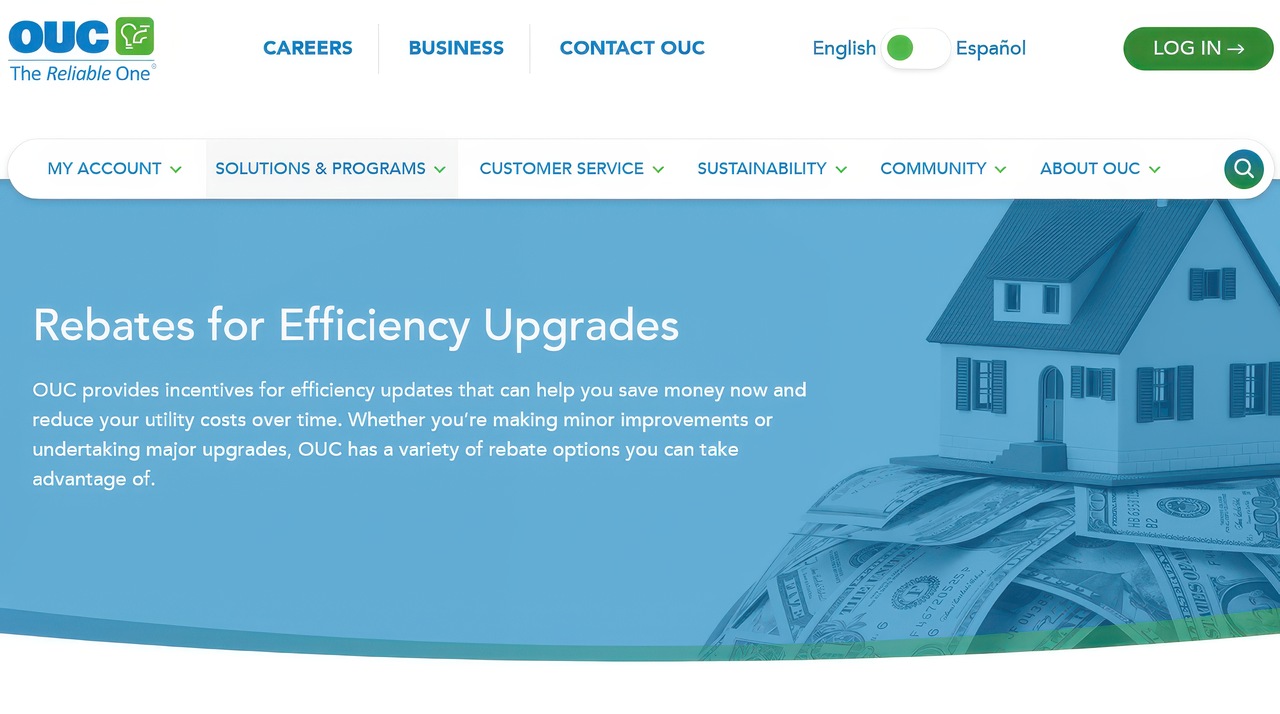
FAQs
Most AC replacements in Orlando take one full day (6–10 hours) for a straightforward swap of indoor and outdoor units. If ductwork, electrical upgrades, or attic access issues are involved, the job can extend to two days or more.
If your AC is over 10–12 years old, needs frequent repairs or uses outdated refrigerant (R-22), replacement is usually the smarter investment. A new high-efficiency system can lower energy bills by 20–40 percent and improve comfort.
Labor typically accounts for 30–50 percent of the total installation cost, averaging $1,200 to $3,000 for most homes. The exact price depends on the system size, location, contractor, and whether ductwork or electrical work is needed.
Most air conditioners last at least 7 to 11 years in Florida but can last significantly longer with regular maintenance and preventative inspections.
Air conditioning is highly prized in Florida and there’s a big difference between old, inefficient systems and the latest high-efficiency models. As one of the “big ticket” items that home buyers look for, upgrading to a new, high-efficiency central AC unit can impress buyers and potentially increase the resale value of the home.
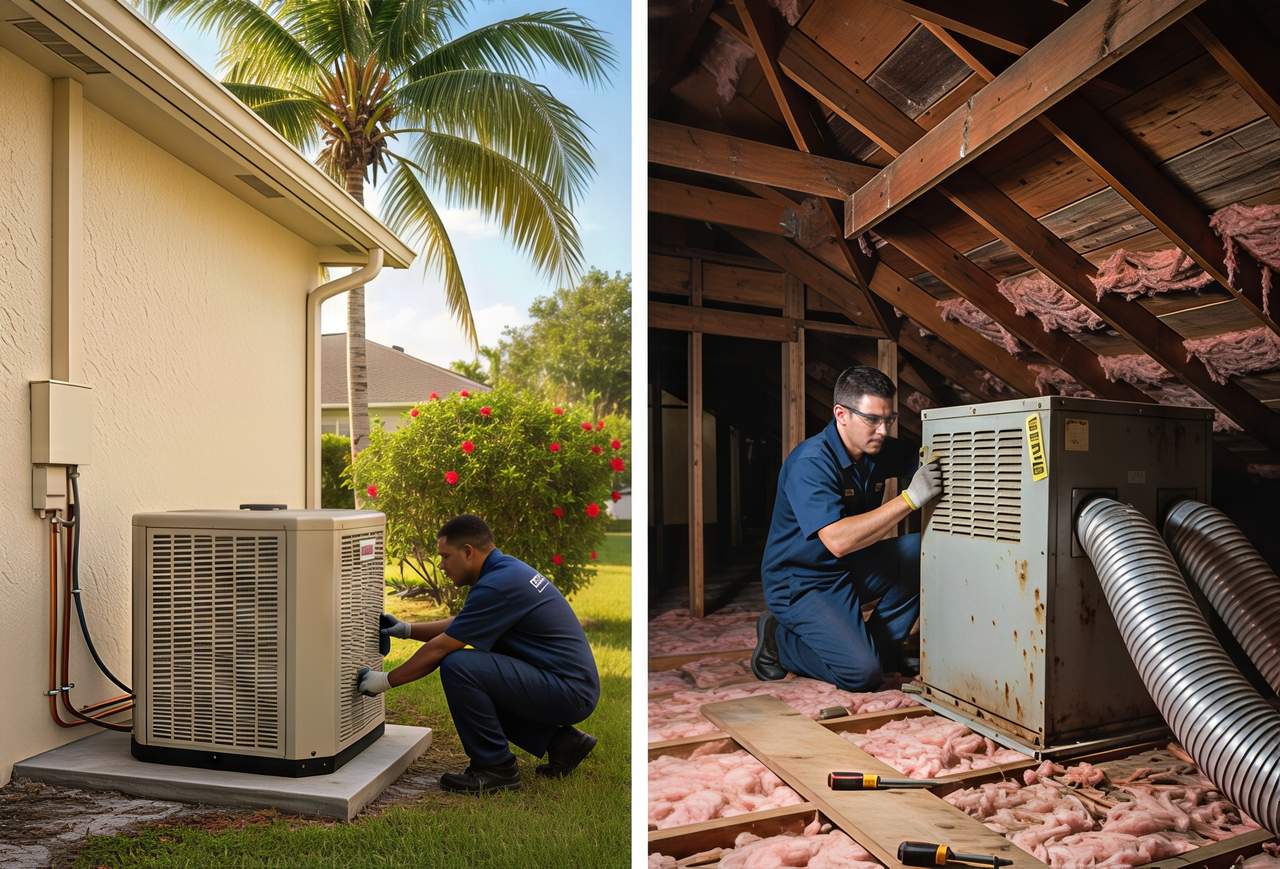
PROFESSIONAL & AFFORDABLE AC REPLACEMENTS IN ORLANDO…
Get a personalized estimate on an AC replacement in Orlando from the One Way Air team. We install, repair, and maintain all makes and models of air conditioners in Orlando.For expert advice and service, contact an AC professional at One Way Air for an inspection today.

